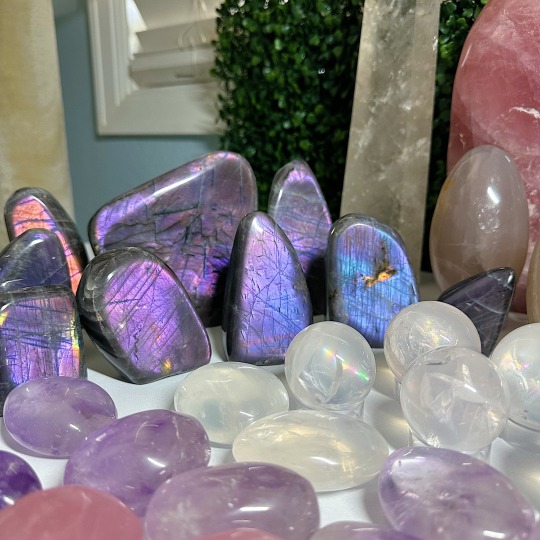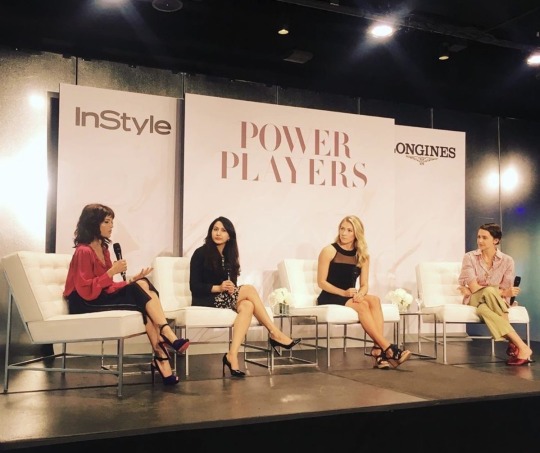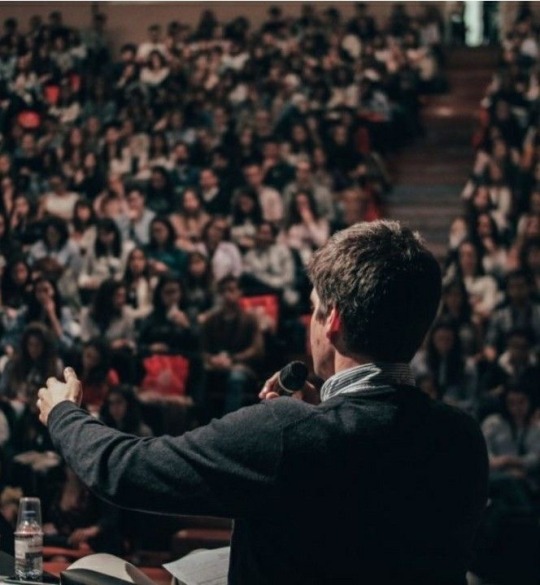#Product (business)
Text
suddenly got curious why people follow us, and also just in general why people follow each other. i know for me I usually follow my friends, whether we became friends on another platform (Discord, Ravelry, AO3, etc.) or because we became friends after interacting with each others' personal posts.
but yeah.
tell prev why you followed them (vote and tell um in the tags!), then reblog to find out in the tags why people follow you!
#polls#lmao I just realized I forgot something like#i like a product that they sell#or they're a business i want to support#shows where my head is right now
3K notes
·
View notes
Text


sunlight in the reading room
#I’ve missed posting but it’s been so busy lately#it really is that point in the semester#but it’s been sunny lately and that’s been so nice#I want to go to bed earlier so I can spend more time in the sun#studyblr#study inspo#study motivation#academia#productivity#literature#u of t#university of Toronto
3K notes
·
View notes
Text
Your car spies on you and rats you out to insurance companies

I'm on tour with my new, nationally bestselling novel The Bezzle! Catch me TOMORROW (Mar 13) in SAN FRANCISCO with ROBIN SLOAN, then Toronto, NYC, Anaheim, and more!

Another characteristically brilliant Kashmir Hill story for The New York Times reveals another characteristically terrible fact about modern life: your car secretly records fine-grained telemetry about your driving and sells it to data-brokers, who sell it to insurers, who use it as a pretext to gouge you on premiums:
https://www.nytimes.com/2024/03/11/technology/carmakers-driver-tracking-insurance.html
Almost every car manufacturer does this: Hyundai, Nissan, Ford, Chrysler, etc etc:
https://www.repairerdrivennews.com/2020/09/09/ford-state-farm-ford-metromile-honda-verisk-among-insurer-oem-telematics-connections/
This is true whether you own or lease the car, and it's separate from the "black box" your insurer might have offered to you in exchange for a discount on your premiums. In other words, even if you say no to the insurer's carrot – a surveillance-based discount – they've got a stick in reserve: buying your nonconsensually harvested data on the open market.
I've always hated that saying, "If you're not paying for the product, you're the product," the reason being that it posits decent treatment as a customer reward program, like the little ramekin warm nuts first class passengers get before takeoff. Companies don't treat you well when you pay them. Companies treat you well when they fear the consequences of treating you badly.
Take Apple. The company offers Ios users a one-tap opt-out from commercial surveillance, and more than 96% of users opted out. Presumably, the other 4% were either confused or on Facebook's payroll. Apple – and its army of cultists – insist that this proves that our world's woes can be traced to cheapskate "consumers" who expected to get something for nothing by using advertising-supported products.
But here's the kicker: right after Apple blocked all its rivals from spying on its customers, it began secretly spying on those customers! Apple has a rival surveillance ad network, and even if you opt out of commercial surveillance on your Iphone, Apple still secretly spies on you and uses the data to target you for ads:
https://pluralistic.net/2022/11/14/luxury-surveillance/#liar-liar
Even if you're paying for the product, you're still the product – provided the company can get away with treating you as the product. Apple can absolutely get away with treating you as the product, because it lacks the historical constraints that prevented Apple – and other companies – from treating you as the product.
As I described in my McLuhan lecture on enshittification, tech firms can be constrained by four forces:
I. Competition
II. Regulation
III. Self-help
IV. Labor
https://pluralistic.net/2024/01/30/go-nuts-meine-kerle/#ich-bin-ein-bratapfel
When companies have real competitors – when a sector is composed of dozens or hundreds of roughly evenly matched firms – they have to worry that a maltreated customer might move to a rival. 40 years of antitrust neglect means that corporations were able to buy their way to dominance with predatory mergers and pricing, producing today's inbred, Habsburg capitalism. Apple and Google are a mobile duopoly, Google is a search monopoly, etc. It's not just tech! Every sector looks like this:
https://www.openmarketsinstitute.org/learn/monopoly-by-the-numbers
Eliminating competition doesn't just deprive customers of alternatives, it also empowers corporations. Liberated from "wasteful competition," companies in concentrated industries can extract massive profits. Think of how both Apple and Google have "competitively" arrived at the same 30% app tax on app sales and transactions, a rate that's more than 1,000% higher than the transaction fees extracted by the (bloated, price-gouging) credit-card sector:
https://pluralistic.net/2023/06/07/curatorial-vig/#app-tax
But cartels' power goes beyond the size of their warchest. The real source of a cartel's power is the ease with which a small number of companies can arrive at – and stick to – a common lobbying position. That's where "regulatory capture" comes in: the mobile duopoly has an easier time of capturing its regulators because two companies have an easy time agreeing on how to spend their app-tax billions:
https://pluralistic.net/2022/06/05/regulatory-capture/
Apple – and Google, and Facebook, and your car company – can violate your privacy because they aren't constrained regulation, just as Uber can violate its drivers' labor rights and Amazon can violate your consumer rights. The tech cartels have captured their regulators and convinced them that the law doesn't apply if it's being broken via an app:
https://pluralistic.net/2023/04/18/cursed-are-the-sausagemakers/#how-the-parties-get-to-yes
In other words, Apple can spy on you because it's allowed to spy on you. America's last consumer privacy law was passed in 1988, and it bans video-store clerks from leaking your VHS rental history. Congress has taken no action on consumer privacy since the Reagan years:
https://www.eff.org/tags/video-privacy-protection-act
But tech has some special enshittification-resistant characteristics. The most important of these is interoperability: the fact that computers are universal digital machines that can run any program. HP can design a printer that rejects third-party ink and charge $10,000/gallon for its own colored water, but someone else can write a program that lets you jailbreak your printer so that it accepts any ink cartridge:
https://www.eff.org/deeplinks/2020/11/ink-stained-wretches-battle-soul-digital-freedom-taking-place-inside-your-printer
Tech companies that contemplated enshittifying their products always had to watch over their shoulders for a rival that might offer a disenshittification tool and use that as a wedge between the company and its customers. If you make your website's ads 20% more obnoxious in anticipation of a 2% increase in gross margins, you have to consider the possibility that 40% of your users will google "how do I block ads?" Because the revenue from a user who blocks ads doesn't stay at 100% of the current levels – it drops to zero, forever (no user ever googles "how do I stop blocking ads?").
The majority of web users are running an ad-blocker:
https://doc.searls.com/2023/11/11/how-is-the-worlds-biggest-boycott-doing/
Web operators made them an offer ("free website in exchange for unlimited surveillance and unfettered intrusions") and they made a counteroffer ("how about 'nah'?"):
https://www.eff.org/deeplinks/2019/07/adblocking-how-about-nah
Here's the thing: reverse-engineering an app – or any other IP-encumbered technology – is a legal minefield. Just decompiling an app exposes you to felony prosecution: a five year sentence and a $500k fine for violating Section 1201 of the DMCA. But it's not just the DMCA – modern products are surrounded with high-tech tripwires that allow companies to invoke IP law to prevent competitors from augmenting, recongifuring or adapting their products. When a business says it has "IP," it means that it has arranged its legal affairs to allow it to invoke the power of the state to control its customers, critics and competitors:
https://locusmag.com/2020/09/cory-doctorow-ip/
An "app" is just a web-page skinned in enough IP to make it a crime to add an ad-blocker to it. This is what Jay Freeman calls "felony contempt of business model" and it's everywhere. When companies don't have to worry about users deploying self-help measures to disenshittify their products, they are freed from the constraint that prevents them indulging the impulse to shift value from their customers to themselves.
Apple owes its existence to interoperability – its ability to clone Microsoft Office's file formats for Pages, Numbers and Keynote, which saved the company in the early 2000s – and ever since, it has devoted its existence to making sure no one ever does to Apple what Apple did to Microsoft:
https://www.eff.org/deeplinks/2019/06/adversarial-interoperability-reviving-elegant-weapon-more-civilized-age-slay
Regulatory capture cuts both ways: it's not just about powerful corporations being free to flout the law, it's also about their ability to enlist the law to punish competitors that might constrain their plans for exploiting their workers, customers, suppliers or other stakeholders.
The final historical constraint on tech companies was their own workers. Tech has very low union-density, but that's in part because individual tech workers enjoyed so much bargaining power due to their scarcity. This is why their bosses pampered them with whimsical campuses filled with gourmet cafeterias, fancy gyms and free massages: it allowed tech companies to convince tech workers to work like government mules by flattering them that they were partners on a mission to bring the world to its digital future:
https://pluralistic.net/2023/09/10/the-proletarianization-of-tech-workers/
For tech bosses, this gambit worked well, but failed badly. On the one hand, they were able to get otherwise powerful workers to consent to being "extremely hardcore" by invoking Fobazi Ettarh's spirit of "vocational awe":
https://www.inthelibrarywiththeleadpipe.org/2018/vocational-awe/
On the other hand, when you motivate your workers by appealing to their sense of mission, the downside is that they feel a sense of mission. That means that when you demand that a tech worker enshittifies something they missed their mother's funeral to deliver, they will experience a profound sense of moral injury and refuse, and that worker's bargaining power means that they can make it stick.
Or at least, it did. In this era of mass tech layoffs, when Google can fire 12,000 workers after a $80b stock buyback that would have paid their wages for the next 27 years, tech workers are learning that the answer to "I won't do this and you can't make me" is "don't let the door hit you in the ass on the way out" (AKA "sharpen your blades boys"):
https://techcrunch.com/2022/09/29/elon-musk-texts-discovery-twitter/
With competition, regulation, self-help and labor cleared away, tech firms – and firms that have wrapped their products around the pluripotently malleable core of digital tech, including automotive makers – are no longer constrained from enshittifying their products.
And that's why your car manufacturer has chosen to spy on you and sell your private information to data-brokers and anyone else who wants it. Not because you didn't pay for the product, so you're the product. It's because they can get away with it.
Cars are enshittified. The dozens of chips that auto makers have shoveled into their car design are only incidentally related to delivering a better product. The primary use for those chips is autoenshittification – access to legal strictures ("IP") that allows them to block modifications and repairs that would interfere with the unfettered abuse of their own customers:
https://pluralistic.net/2023/07/24/rent-to-pwn/#kitt-is-a-demon
The fact that it's a felony to reverse-engineer and modify a car's software opens the floodgates to all kinds of shitty scams. Remember when Bay Staters were voting on a ballot measure to impose right-to-repair obligations on automakers in Massachusetts? The only reason they needed to have the law intervene to make right-to-repair viable is that Big Car has figured out that if it encrypts its diagnostic messages, it can felonize third-party diagnosis of a car, because decrypting the messages violates the DMCA:
https://www.eff.org/deeplinks/2013/11/drm-cars-will-drive-consumers-crazy
Big Car figured out that VIN locking – DRM for engine components and subassemblies – can felonize the production and the installation of third-party spare parts:
https://pluralistic.net/2022/05/08/about-those-kill-switched-ukrainian-tractors/
The fact that you can't legally modify your car means that automakers can go back to their pre-2008 ways, when they transformed themselves into unregulated banks that incidentally manufactured the cars they sold subprime loans for. Subprime auto loans – over $1t worth! – absolutely relies on the fact that borrowers' cars can be remotely controlled by lenders. Miss a payment and your car's stereo turns itself on and blares threatening messages at top volume, which you can't turn off. Break the lease agreement that says you won't drive your car over the county line and it will immobilize itself. Try to change any of this software and you'll commit a felony under Section 1201 of the DMCA:
https://pluralistic.net/2021/04/02/innovation-unlocks-markets/#digital-arm-breakers
Tesla, naturally, has the most advanced anti-features. Long before BMW tried to rent you your seat-heater and Mercedes tried to sell you a monthly subscription to your accelerator pedal, Teslas were demon-haunted nightmare cars. Miss a Tesla payment and the car will immobilize itself and lock you out until the repo man arrives, then it will blare its horn and back itself out of its parking spot. If you "buy" the right to fully charge your car's battery or use the features it came with, you don't own them – they're repossessed when your car changes hands, meaning you get less money on the used market because your car's next owner has to buy these features all over again:
https://pluralistic.net/2023/07/28/edison-not-tesla/#demon-haunted-world
And all this DRM allows your car maker to install spyware that you're not allowed to remove. They really tipped their hand on this when the R2R ballot measure was steaming towards an 80% victory, with wall-to-wall scare ads that revealed that your car collects so much information about you that allowing third parties to access it could lead to your murder (no, really!):
https://pluralistic.net/2020/09/03/rip-david-graeber/#rolling-surveillance-platforms
That's why your car spies on you. Because it can. Because the company that made it lacks constraint, be it market-based, legal, technological or its own workforce's ethics.
One common critique of my enshittification hypothesis is that this is "kind of sensible and normal" because "there’s something off in the consumer mindset that we’ve come to believe that the internet should provide us with amazing products, which bring us joy and happiness and we spend hours of the day on, and should ask nothing back in return":
https://freakonomics.com/podcast/how-to-have-great-conversations/
What this criticism misses is that this isn't the companies bargaining to shift some value from us to them. Enshittification happens when a company can seize all that value, without having to bargain, exploiting law and technology and market power over buyers and sellers to unilaterally alter the way the products and services we rely on work.
A company that doesn't have to fear competitors, regulators, jailbreaking or workers' refusal to enshittify its products doesn't have to bargain, it can take. It's the first lesson they teach you in the Darth Vader MBA: "I am altering the deal. Pray I don't alter it any further":
https://pluralistic.net/2023/10/26/hit-with-a-brick/#graceful-failure
Your car spying on you isn't down to your belief that your carmaker "should provide you with amazing products, which brings your joy and happiness you spend hours of the day on, and should ask nothing back in return." It's not because you didn't pay for the product, so now you're the product. It's because they can get away with it.
The consequences of this spying go much further than mere insurance premium hikes, too. Car telemetry sits at the top of the funnel that the unbelievably sleazy data broker industry uses to collect and sell our data. These are the same companies that sell the fact that you visited an abortion clinic to marketers, bounty hunters, advertisers, or vengeful family members pretending to be one of those:
https://pluralistic.net/2022/05/07/safegraph-spies-and-lies/#theres-no-i-in-uterus
Decades of pro-monopoly policy led to widespread regulatory capture. Corporate cartels use the monopoly profits they extract from us to pay for regulatory inaction, allowing them to extract more profits.
But when it comes to privacy, that period of unchecked corporate power might be coming to an end. The lack of privacy regulation is at the root of so many problems that a pro-privacy movement has an unstoppable constituency working in its favor.
At EFF, we call this "privacy first." Whether you're worried about grifters targeting vulnerable people with conspiracy theories, or teens being targeted with media that harms their mental health, or Americans being spied on by foreign governments, or cops using commercial surveillance data to round up protesters, or your car selling your data to insurance companies, passing that long-overdue privacy legislation would turn off the taps for the data powering all these harms:
https://www.eff.org/wp/privacy-first-better-way-address-online-harms
Traditional economics fails because it thinks about markets without thinking about power. Monopolies lead to more than market power: they produce regulatory capture, power over workers, and state capture, which felonizes competition through IP law. The story that our problems stem from the fact that we just don't spend enough money, or buy the wrong products, only makes sense if you willfully ignore the power that corporations exert over our lives. It's nice to think that you can shop your way out of a monopoly, because that's a lot easier than voting your way out of a monopoly, but no matter how many times you vote with your wallet, the cartels that control the market will always win:
https://pluralistic.net/2024/03/05/the-map-is-not-the-territory/#apor-locksmith

Name your price for 18 of my DRM-free ebooks and support the Electronic Frontier Foundation with the Humble Cory Doctorow Bundle.

If you'd like an essay-formatted version of this post to read or share, here's a link to it on pluralistic.net, my surveillance-free, ad-free, tracker-free blog:
https://pluralistic.net/2024/03/12/market-failure/#car-wars

Image:
Cryteria (modified)
https://commons.wikimedia.org/wiki/File:HAL9000.svg
CC BY 3.0
https://creativecommons.org/licenses/by/3.0/deed.en
#pluralistic#if you're not paying for the product you're the product#if you're paying for the product you're the product#cars#automotive#enshittification#technofeudalism#autoenshittification#antifeatures#felony contempt of business model#twiddling#right to repair#privacywashing#apple#lexisnexis#insuretech#surveillance#commercial surveillance#privacy first#data brokers#subprime#kash hill#kashmir hill
2K notes
·
View notes
Text

‘But I am very poorly today & very stupid & hate everyone & everything’
- Charles Darwin. Letter to Charles Lyell, 1 October 1861
#Darwin#quotes#famous quotes#Charles Darwin#always remember that everyone has bad days sometimes#even the people who look like they are productive beyond human capacity#sometimes it’s important to just acknowledge it and see that there are good things to come#but right now is just shit#anyway I have a flu or something#and right now I hate everyone and everything#and my immune system most of all#and the parents who send their sick and contagious kids to daycare#and the evolution of viruses#who tbh have absolutely no business to be wreaking such havoc on the more organised domains of life#about me#sorry to be a downer#your usual frog-related content will resume after a brief intermission#I realise that posting quotes is super cringe#sorry about that#at least some of you probably haven’t seen this quote before#so you’ve learned something today#and I’ve gotten to vent#win-win?
1K notes
·
View notes
Text
Takeaways from my mentor
I meet with my mentor as and when he’s available. He manages my family’s money and he’s very good at what he does - his firm manages about $5 billion, and I have great conversations with him.
I don’t want to talk too much about him, but he came from a lower middle class background and today is wealthy beyond comprehension. He could buy a plane or two in the middle of the night if he wanted.
Today we focused a lot of personal growth in my career.
He gave me two books - The Inheritors by Sonu Bhasin and Fortune’s Children by Arthur Vanderbilt.
Here are some brief takeaways:
Work backwards from the outcome you want.
Define the outcome of where you want to be and plan it backwards to your current position.
2. Eliminate, eliminate, eliminate.
Life is all about elimination. Don’t focus on your weaknesses, focus on your strengths. Eliminate all the things you know you’re not good at, you have no interest in and that make you depressed.
3. Intellectual honesty.
Be honest with yourself about things you are good at and are not. The easiest person to fool is yourself.
4. Read one business biography a week.
Everything you’re going in life, there’s a 99% chance someone else has gone through it and come out of it victorious. He also mentioned this article.
5. Outline 3 strengths and 3 weaknesses.
6. (In business/ corporate careers) You’re either primarily an investor (you’d rather fund companies and start ups than start them), an operator (you’d rather build something hands on), or a manager (you’d rather periodically manage something hands off. Like for instance you could have your own franchise bakery chain where you don’t need to exercise minute control over every franchise but you still ensure that there’s some managing done from your part).
7. Do not have extreme ideologies at this age.
Not when it comes to religion, politics, etc.
8. Emotions, money and your time are something you need to be ruthless about. Absolutely ruthless.
Be careful about the friends you have and the influence they have on you.
#ceo aesthetic#that girl#personal growth#strong women#powerful woman#balance#getting your life together#c suite#q/a#productivity#Business#Mentor#mentoring#takeaways#business advice#Corporate#success
1K notes
·
View notes
Text

"The key to success is to start before you're ready"
#study aesthetic#study blog#study motivation#studyblr#studyspo#productivity#study notes#study abroad#study hard#study space#studying#studygram#2k23#busy#girl please#girl please study#come on#you got this
859 notes
·
View notes
Text
to preface this post i am anti-advertising i think we should explode the entire industry but it's sooo funny when you people make posts like "and they don't even work!!" like. sorry to be the bearer of bad news but yes they do. that's why we have to put up with so many despite everyone hating them and thinking its annoying. because they actually work really well and make a shit load of money
#it actually would be way better if they didnt work and made no money bc businesses would abandon them#this isnt like stocks where everythings abstract and is essentially gambling (i dont understand stocks)#like ppl in the ad industry create things. that make a tangible and quantifiable impact on the business#which is then used in further ad planning. it is NOT all smoke and mirrors#like its fake in that the industry is not providing a necessary service the way like. grocery stores are#but its not the level of fake where everything is abstract like theres deliverables#moreover there is an extensive body of academic work specifically on how to make ads more effective#ALSO i think some of u views ads like. as if they have a win condition. which is you buy product#but in current advertising this is pretty rare and comparatively ineffective#which is why you see MANY ads which dont seem to be selling anything in particular. or which have nothing all to do with the product#the 'win' condition for THAT kind of ad is something more like 'viewers remember our name'#like. ex i would say ads for temu have not been effective on me bc i havent bought anything from them#but temu probably thinks they were SUPER effective on me because i talked abt them like 5 different times at work#and i do in fact know exactly what the company does and what they sell#and they were able to capitalize on the reputations of existing companies (wish shein etc) to build their own brand#good idea generator
712 notes
·
View notes
Text

so how we feeling about,, dca tamagotchis...
#forgive my absence i got covid a SECOND TIME NOW#i make like#silly product designs of the blorbos from time to time#im actually very busy with portfolio stuff forgive me#fnaf sb#my art#moondrop#fnaf#five nights at freddy's security breach#fnaf moondrop#fnaf security breach#fnaf 9
317 notes
·
View notes
Text

#you are not your productivity#you are not a product#stop the glorification of busy#self compassion#self care#self love#self respect#self forgiveness#it's okay to have a potato day#chronic illness#work#career#boundaries#codependency#people pleasing#fawning#give yourself permission to rest#rest#you matter#you are enough#you are worthy
4K notes
·
View notes
Text
I'm still seeing a lot of angry takes in the tags about how excessive Watcher's current costs are and how all fans really want, apparently, is "just shane and ryan sitting in a basement" back again. While I do think Watcher is probably spending over budget and that's a real issue, a lot of the takes I'm seeing show a fundamental misunderstanding of how video production works and where costs actually lie. So a few quick things that I just keep seeing that are bothering me:
It was never just Shane and Ryan in a basement. BFU did a great job selling that conceit and making sure you never saw anyone beyond them and maybe TJ, but they absolutely had other crew members with them on ghost hunts and they didn't do all the work on BFU themselves. This Q&A from Season 2 lists 36 people on staff for Buzzfeed Unsolved. It's fair to make arguments that Watcher may or may not need 25 people, but those arguments should not be coming from a place of "before it was just Shane and Ryan and nobody else."
If you don't know how many people are needed to make a professional video from a TV/film standpoint, you will not have a reasonable grasp of why Watcher wants to keep 25 people on staff. Sure, some YouTubers get by with a ring light and a contracted editor. The Watcher team have stated repeatedly that they do not want to work as just YouTubers and see themselves more as a production studio—so why do people keep referencing the YouTube model to understand their business? This is like asking the local shake shop why it doesn't function like the kids' lemonade stand down the block. The item category is similar but they're not trying for the same products or process.
The "gold dusted food" is not the big budget sink you think it is. On most TV shows I've worked on it's normal to partner with businesses that are shown onscreen and work out a deal where the price of the product (in this case the gold food) is reduced or eliminated in exchange for the free publicity. Watcher very likely made a deal with every restaurant it worked with to make the Korea trip affordable for the company. The real budget spends are on things you're probably not seeing but that still matter: camera and lighting equipment is expensive, insurance for that equipment is expensive, business overhead and paying your staff are expensive. So again—it's fine to critique Watcher for the streaming plan and the perceived budgetary issues, but go into this knowing the costs might not be coming from the things you see onscreen.
My source is that I work in TV and film and actually have a clue on how the industry functions. Again, 36 people worked on Unsolved (and those were the people mention in Season 2—who knows how big the team blew up past that in later seasons). Entertainment work is real work, and demands decent equipment, competent staff, and the same types of business and budget problems you'd find in any other business (overhead, staffing, etc.). Feel free to critique Watcher's business model, but first try to understand where that model is coming from and what goals it's attempting to serve.
#watcher#watcher entertainment#rant! sorry! couldn't see another take from someone who clearly thinks video work is just fun and games because “it's entertainment right”#funny how people expect normal business costs and problems for any other career but if it's involved with production they think everything#just magically happens and is made entirely by the onscreen talent. nutso#anyway i think watcher is probably trying its best; maybe got too overexcited; but cares about quality of life for its employees and#wants no one working to the bone. which is admirable! the streaming service was a bad idea but they're not the literal devil like some thin#they're 3 self described idiots doing this for the first time. they backpedaled. i don't see this as the death of the company & i'm gonna#keep supporting them :)
153 notes
·
View notes
Quote
Sometimes a step back or away from an idea, task or project brings even more perspective, insight and clarity.
Rasheed Ogunlaru
#Rasheed Ogunlaru#quotes#motivation#inspiration#thepersonalquotes#literature#lit#business-quotes#creativity#getting-things-done#ideas-quotes#insight#inspirational-quotes#motivational-quotes#perspective#productivity#project-management#projects#rasheed-ogunlaru#rasheed-ogunlaru-quotes
186 notes
·
View notes
Text


Forget flowers ~ I want crystals 🫧
#crystals#actuallyiwantboth#product photography#small business#wire wrapped jewelry#silversmith#crystal shop#labradorite#pink amethyst#girasol#rose quartz#flower agate#artists on tumblr#jewelry#jewelry artist
441 notes
·
View notes
Text
etsy is waiving their 6.5% transaction fees for orders made through a seller's special shop link now through february 15th, so if anybody would like to order from my shop this is a really good time 👉👈 as a reminder, all stickers ship free in the 50 US states
cozylittleartshoppe on etsy

(reblogs appreciated!)
#small business#etsy#etsy shop#artist support#delete later#actually if you plan to order Anything from etsy use my link but put whatever shop name u want in place of mine#it'll waive the fees for them too#or at least it should#i need to update my banner to have some of my newer products in it. i made this almost a year ago now
212 notes
·
View notes
Text
I'm not mad I'm just disappointed because if you spent two seconds to think about how fur and leather alone has deep ties to human culture and our understanding and appreciation of the natural world it's honestly really beautiful and just feels so strange to me that people who say they love nature want to divorce themselves from it.
Like yes, capitalism bad. I don't agree with the way that animals are treated as products to the point where blatant animal cruelty is excused by mega corporations. I want places like that to be held accountable and made to follow higher welfare standards for the animals they raise and the underpaid employees out there working in sometimes awful and very unsafe conditions.
But if you're simultaneously ignoring the culture of African leathermaking or the beautiful leather and wool textiles crafted by Indigenous artisans or the ways that ancient humans appreciated the animals they killed for meat and clothing by telling stories and making art depicted on the skins of the animals they took, that's what bothers me.
So many people are willing to just attack vulnerable communities instead of learning about thier culture and how animal products were used traditionally and today. There are better ways to raise animals for products sustainably and humanely and many of these communities have spoken very loudly about it but are yelled over by people who just want to be right or don't want to listen or just don't care.
So yes, I will continue to speak my mind and educate myself because if nothing else I wanna be the start of the change I wanna see in the world. I love animals and I love learning the history of humans and our relationships to animals. I want to be able to appreciate them in the ways we always have. With respect to the natural world and understanding that we're also a part of it.
#jackal's journal#ok I'm done#I can't sleep so I'm rambling but#stop assuming your way is the only way#or that people who defend the use of animal products are just automatically siding with the devil#ya'll don't even know how hard it is to research my own cultural background because of this#like given I had the time and resources I would LOVE to study African-American leathermaking and use of animal products#but so many businesses were wiped from existence or bought up or shut down#lemme stop before I get too passionate in my own damn tags#I just got feelings
1K notes
·
View notes
Text
I wonder how many business majors turn out like I did: disillusioned leftists who view all they learned for that degree with a healthy dose of skepticism.
#don't get me wrong there ARE things that are worth knowing. how to distribute a supply chain or scheduling a project efficiently#I'm a big fan of how it taught me to understand tariffs and PPP and comparative productivity etc#but most of what I got out of it was either understanding economics at scale or understanding human psychology/sociology wrt capitalism#anyway. weird thoughts after the hbomberguy video mentioned Somerton was a business grad more than once#phoenix talks
183 notes
·
View notes
Text




How To Make Full Use of Networking Events
Networking events and conferences are great because you get to meet and learn from experts but also connect with peers. I recently attended one and I wanted to share things I wish I had done before and what I learned.
1. Define an Objective
You have to determine why exactly you want to go to the event. Are you looking for a career change? A job? Advice on how to be better at your current job? How to tackle some issues in your start up? Networking? Make a list of the reasons.
2. Research
You need to research the speakers extensively. Go over their Wikipedias, LinkedIns and other social medias. Read their company websites from top to bottom. If they’ve released a book, take a look at the summary and read the reviews. Read some of their published articles.
Take this time to prepare at least 3 questions per speaker. Try to make at unique and interesting as possible, don’t ask the usual generic ones.
3. Business Cards
Definitely carry business cards. Make sure that your email, LinkedIn is mentioned clearly. Even if you work at a different company, that doesn’t matter- show your job title on the business card. Better yet, ask your HR if they can give you business cards as you would be promoting their company through your event. If you’re a student, I’d recommend you make a portfolio website of your internships/ project/ past work/ volunteer work/ hobbies/ interests.
4. Actually Talking
During the event, don’t be shy to ask questions. It doesn’t matter whether the rest of the audience thinks they’re stupid. You have spent your money to come there for your gain. Make full use of it. Ask questions. Meet the speaker after the event. Thank them for the insight, introduce yourself, ask them questions related to your objective of coming to the conference. Exchange business cards.
5. Utilising Coffee Breaks
Coffee and lunch breaks are a great way to talk to people. You may feel shy or awkward to talk to new people, but there’s very high chances that they feel the same way. You can start off by asking someone how they heard about the event, what they thought of the speaker, or pass a remark on the question they asked the speaker. Keep in mind that if the event has multiple speakers, there could be a chance that you’re talking to a speaker, even if you don’t recognise them… so be on your best behaviour.
6. Questions
Ask questions that are beneficial to you. During my conference, we had a women-leaders panel. An audience member asked the speakers how they divided their work between family and work. The speakers looked visibly annoyed at the question - because how generic is that?
Ask questions that could help you grow. If you’re in marketing, ask about their tried and tested marketing strategies. If you’re an early stage founder, ask them how they sourced their VC. If you’re struggling with time management, ask the speakers how they manage. Ask the questions for YOUR own benefit.
You can ask difficult questions but make sure you do it respectfully and tactfully. Best to start with a compliment and then ease into the question.
7. Dressing
Business casual, unless mentioned otherwise. What this means: blazer/ jackets/ trousers/ pencil skirts/ shirt/ co-ord sets/ no sneakers.
It doesn’t matter what other people wear. The way you present yourself is your brand. It also shows the respect you have for the other person - you respect them enough to not come shabbily dressed.
#c suite#powerful woman#ceo aesthetic#personal growth#that girl#productivity#strong women#getting your life together#feminine energy#balance#networking#conferences#how to network#connect#how to connect#speakers#business#entrepreneurship#experts#connections#LinkedIn#questions#socialise#socialising#public events#boost your cv#resume#skills#adulting
1K notes
·
View notes